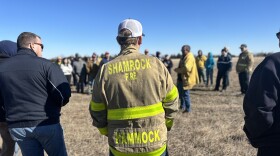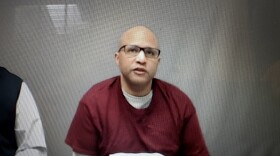This week on Indian Times, we look back at 2013... lucky for some, not so lucky for others.
The number 13 has long been regarded as unlucky... but does that apply to the Indian world? Maybe. As John Echohawk and then-president of the National Congress of American Indians Jefferson Keel advised Indian Country to stay away from the United States Supreme Court, it seemed good advice. As the long drawn out fight for custody of Cherokee citizen Baby Veronica illustrated.
The high court sided with non-Indian adoptive parents, the Capobiancos of South Carolina. And while biological dad Dusten Brown continued the fight, and had custody of the little girl for nearly two years, the Oklahoma Supreme Court and republican Governor Mary Fallin did not support his efforts. Brown eventually gave up the fight and said it was to save Veronica from the continued media spotlight. The Capobiancos are now suing Brown and the Cherokee Nation to recover the money they spent waging their legal battle.
Tribes in Oklahoma had their own squabbles, much like a custody battle, over who runs things. The Cheyenne-Arapahos had two women vying for the top spot... one with the votes, one holding the purse strings to the tribe. The situation remains unresolved with the Bureau of Indian Affairs continuing to monitor the C/A's but not intervening.
Also in flux is the Caddo Nation, with a dramatic taking over of the main tribal offices by the assistant chief claiming voting irregularities. Once again, one leader has the votes and the other says otherwise. That scenario continues into 2014.
While these are internal tribal struggles, there is another kind, and that is with tribes being under the jurisdiction of a larger, more politically powerful tribe. Two tribes are stuggling with that now. The Delawares got their federal recognition back and have been trying to extricate their funding from the Cherokee Nation, as their tribal offices and land base are in their jurisdiction. Some Delaware tribal members have proposed moving the tribal headquarters to former homelands in Kansas. But that is not a simple move and won't be resolved by the end of this year making it another situation to be looked at in 2014.
The other tribe struggling with the the Cherokee Nation is the United Keetowah Band, also Cherokee but a different faction. The Keetowahs lost a long running legal battle with the larger tribe and lost a casino in the process. The closure of the gaming center meant lost jobs. So far, promises from the Cherokee Nation to re-hire those workers have not been fulfilled.
Internal tribal struggles have also been raised in the Osage Nation. Among the accusations against the chief is abuse of power of the office and impeachment proceedings will begin next year.
Governor Mary Fallin decided to let all tribal tobacco compacts expire this year, requiring new negotiations. Some tribes argue a more favorable contract was given to the Chickasaw Nation causing the Comanche Nation to file a lawsuit. Judge Robin Cauthron sided with the Comanches. This could also affect the Muscogee Creek Nation's compact, which Chief George Tiger told the Tulsa World was the “not the best compact, but it’s a compact that was negotiated because of circumstances around it, and it allows us to be to some degree competitive.”
Fallin‘s Native American liaison, Jackie Secondine Hensley, has so far failed to respond to interview requests from Indian Times, so her particular views are not known on the tobacco compacts and other issues. But favorable tobacco compacts, in exchange for certain concessions from a tribe, such as having a smoke-free casino, seem to be the precursor to a better tobacco compact.
This past year the Sand Creek Massacre Descendants Trust filed a lawsuit, not about that atrocity, but concerning the promises made to them in a treaty that was never honored. The agreement was to compensate the survivors and tribal members for the massacre. That action, along with the long awaited final payouts from the Cobell settlement... are legal issues to watch in 2014.
And many Native Americans across the country still want the name of the Washington, D.C. football team changed, despite support for the status quo by the team’s management.
Economics have been at the heart of most of these struggles. Tribes need income to take care of their citizens, culture, programs and to ensure the future.
On the more positive side of this year's Native American news, the Kiowas are still able to gather their special cedar from Longhorn Mountain, although it was under danger of being blasted for gravel. As one of their spiritual leaders commented, so far so good. But they still are trying to get the site protected as a sacred place protecting the unique cedar that grows there.
These observations surely missed some very important items, I urge you to email me at susanshannon@kgou.org with questions or concerns, or call me at 405-325-1133.
Sometimes this Indian world is very small, and sometimes so large, you can't see the end of it.
____________________________________________
KGOU relies on voluntary contributions from readers and listeners to further its mission of public service with arts and culture reporting for Oklahoma and beyond. To contribute to our efforts, make your donation online, or contact our Membership department.







